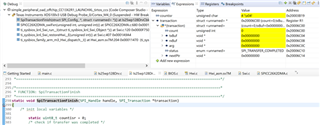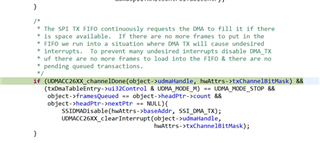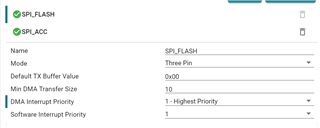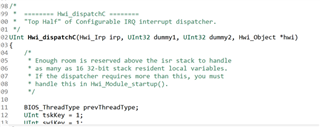Hello,
I set up my SPI to work in callback mode.
When the callback function is triggered after a successfull transmission an event is posted to continue with another SPI transfer.
Lately I am having problems with software crashes.
After long hours of debugging I seem to have found the source of the problem:
pretty soon after my first transmissions the callback function is called from an unknown source.

I captured the evildoer and the transaction object looks like this. No data, no bytes to send.
I certainly do not start an empty SPI transfer to who does?
My SPI is working in 3 pin mode and I set and reset the chip select via GPIO control which worked perfectly fine so far.
In 4 pin mode I never got any callback function calls.





